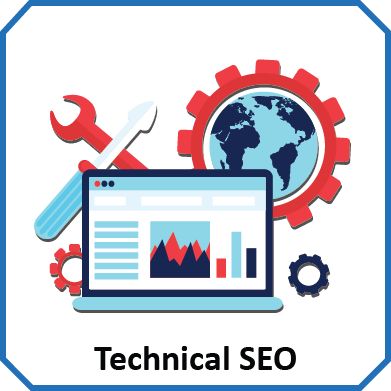Essential SEO Tips for Small Businesses
Search engine optimization (SEO) is crucial for small businesses looking to increase their online visibility and attract more customers. With the right SEO strategies, you can improve your website’s search engine rankings, drive organic traffic, and grow your business. In this blog post, we will share essential SEO tips for small businesses to help you get started.
Conduct Keyword Research

Keyword research is the foundation of any successful SEO strategy. Identify the terms and phrases your potential customers are using to search for your products or services. Use tools like Google Keyword Planner, Ahrefs, or SEMrush to find relevant keywords with high search volume and low competition. Focus on long-tail keywords that are more specific and less competitive.
Optimize Your Website’s On-Page SEO

On-page SEO involves optimizing individual pages on your website to rank higher in search engine results. Here are some key on-page SEO elements to focus on:
1. Title Tags: Each page on your website should have a unique and descriptive title tag that includes your target keyword. Keep it under 60 characters to ensure it displays correctly in search results.
2. Meta Descriptions: Write compelling meta descriptions for each page, incorporating your target keywords. Meta descriptions should be under 160 characters and provide a brief summary of the page content.
3. Header Tags: Use header tags (H1, H2, H3, etc.) to structure your content and make it easy for search engines to understand. The H1 tag should include your main keyword and describe the page’s primary topic.
4. URL Structure: Create clean, descriptive URLs that include your target keywords. Avoid using long, complex URLs with unnecessary parameters.
5. Content Optimization: Ensure your content is high-quality, relevant, and provides value to your audience. Use your target keywords naturally throughout the content, including in the first paragraph, headings, and image alt texts.
Improve Your Website’s Technical SEO

Technical SEO involves optimizing the technical aspects of your website to improve its performance and make it easier for search engines to crawl and index. Here are some essential technical SEO tips:
1. Mobile-Friendliness: Ensure your website is mobile-friendly and responsive. Google prioritizes mobile-friendly websites in its search results, so use tools like Google’s Mobile-Friendly Test to check your site’s performance.
2. Page Speed: Page speed is a crucial ranking factor. Use tools like Google PageSpeed Insights to identify areas for improvement and optimize your site’s loading speed.
3. XML Sitemap: Create an XML sitemap and submit it to Google Search Console. A sitemap helps search engines understand the structure of your website and index your pages more efficiently.
4. Secure Your Website: Use HTTPS to secure your website. A secure website builds trust with your visitors and is a ranking factor for Google.
Build High-Quality Backlinks

Backlinks from reputable websites are a significant ranking factor in SEO. Focus on building high-quality backlinks through the following strategies:
1. Guest Blogging: Write guest posts for reputable blogs in your industry. Include a link back to your website in your author bio or within the content.
2. Outreach: Reach out to influencers, bloggers, and industry websites to promote your content. Building relationships with these sites can lead to valuable backlink opportunities.
3. Content Marketing: Create high-quality, shareable content that naturally attracts backlinks. This could include blog posts, infographics, videos, and case studies.
4. Local Citations: List your business in local directories and review sites such as Yelp, Google My Business, and Yellow Pages. Consistent and accurate listings can improve your local SEO
Optimize for Local SEO

For small businesses, local SEO is essential to attract customers in your area. Here are some tips to optimize for local SEO:
1. Google My Business: Claim and optimize your Google My Business listing. Ensure your business information is accurate and up-to-date, and encourage customers to leave reviews.
2. Local Keywords: Incorporate local keywords into your website content, title tags, and meta descriptions. Use terms like “near me” and specific city or neighborhood names.
3. Local Content: Create content relevant to your local audience. This could include blog posts about local events, news, or community activities.
4. Local Backlinks: Build backlinks from local websites, such as local news sites, community blogs, and local business directories.
Conclusion
Implementing these essential SEO tips can help small businesses improve their online visibility, drive organic traffic, and grow their customer base. Start with thorough keyword research, optimize your on-page and technical SEO, build high-quality backlinks, and focus on local SEO to achieve the best results. With consistent effort and the right strategies, you can enhance your website’s performance and achieve your business goals.
